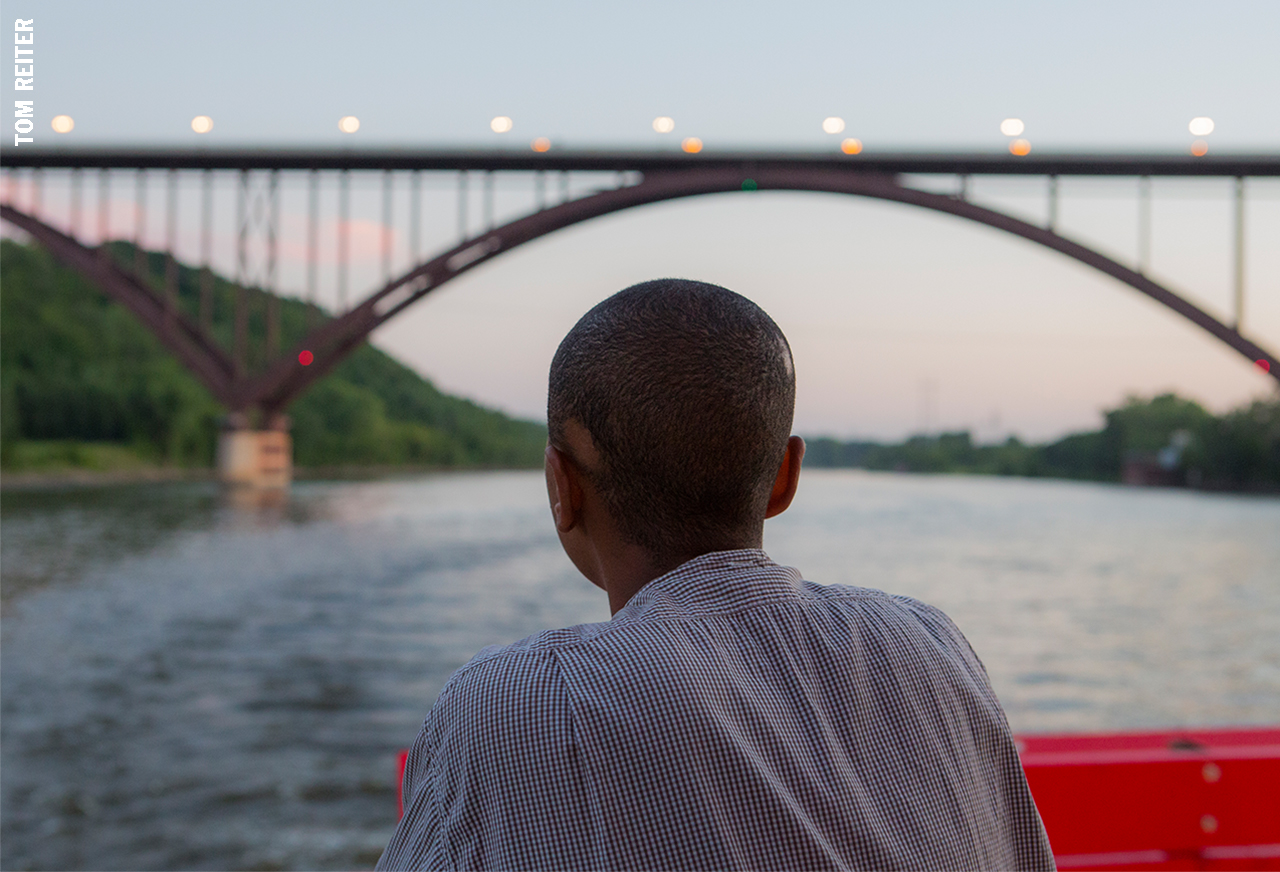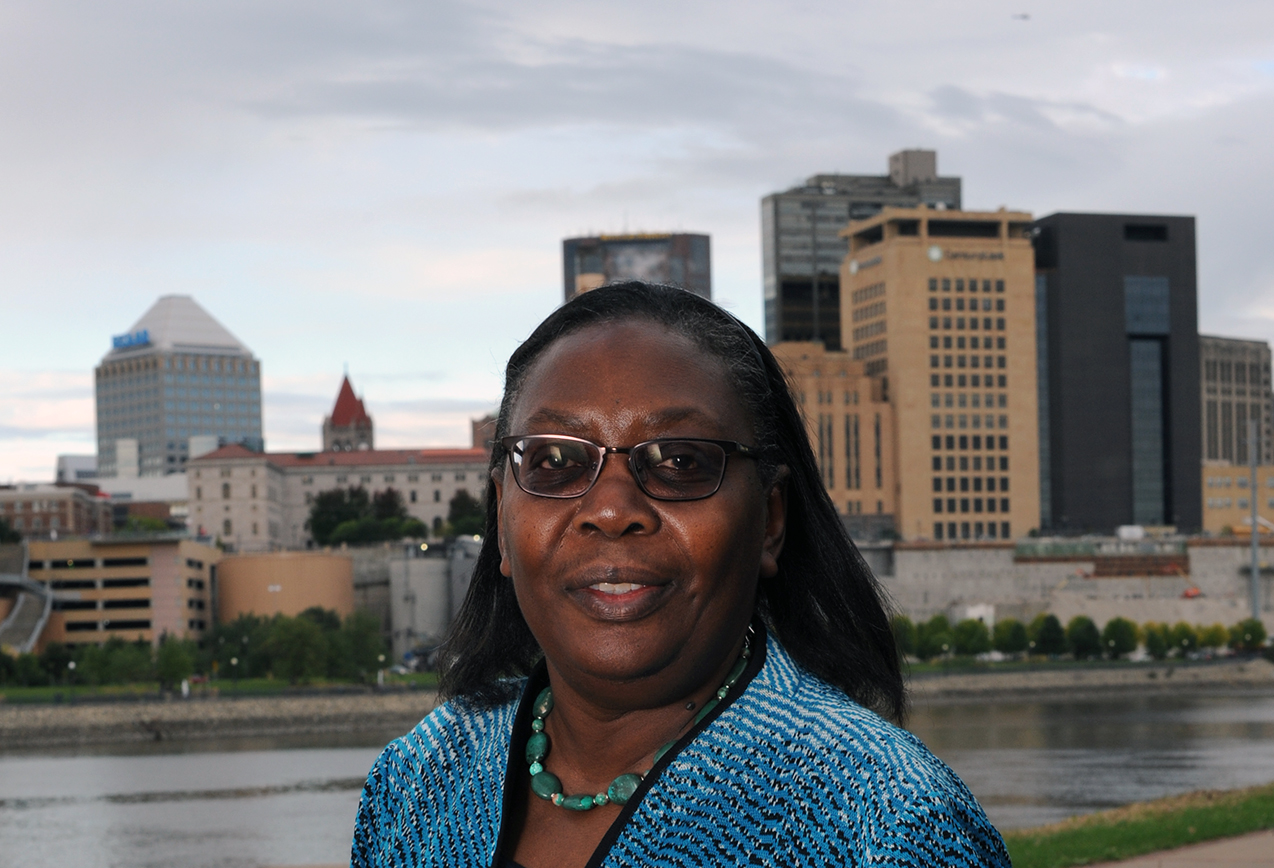How we got started on our equity journey

This article was written in 2018 and updated in early 2023.
At FMR, we have long believed that the Mississippi River connects us all and that social and environmental issues are woven together. But, with these truths in mind, it wasn’t until 2016 that we explicitly addressed equity issues in our strategic plan.
In that plan and each since, our board, staff, advisors and partners made big goals to better engage the region's diverse communities and become more inclusive of cultural and racial diversity.
When we began this journey, we knew it was critical for FMR and other mainstream environmental groups to be diverse and inclusive. We also understood there was much we didn't know and needed to learn to address equity and justice issues in our work.
Today, we’re still learning. And because we know others are too, we’re sharing this overview of our intentions, actions and process in the early years of our ongoing journey. We share this transparently, hoping to continue connecting with others in this work to advance our shared equity goals.
FMR's diversity, equity and inclusion working group
Our first step was to set intentions to envision what our part in environmental justice work might be.
Many goals in FMR’s overarching strategic plan rely on a specific department to lead their implementation. But every part of our organization needs to take action to meet our equity goals. Concerned that no one was tasked with guiding us toward our equity goals, a few of our advocacy and education staff asked to meet with our directors.
As a result, representatives from every level and department of our staff and from our board formed our diversity, equity and inclusion (DEI) working group.
The working group began researching diversity and equity in mainstream environmental work, environmental history and justice, structural racism and more.
They updated our hiring practices to try to reach more diverse candidates and address implicit bias. They incorporated equity training into onboarding for new staff and board members. And they drafted our equity statement and recommended adding "equity" to the organization's list of core values, which the board passed unanimously in 2017. (Our equity statement was later updated in 2022.)
Early on, the working group also knew we needed help; they raised funds and contacted consultants to learn more about approaches to advancing our equity goals.
Finally, they introduced FMR to the work of Dr. Dorceta Taylor, whom we subsequently invited to be the keynote speaker at our signature fall event in 2017.

Dr. Dorceta Taylor (Photo by Anna Botz for FMR)
How Dr. Dorceta Taylor helped us deepen our goals
When we found out Dr. Taylor, one of the nation's preeminent environmental justice scholars, was willing to speak at our annual "Evening Celebrating the River" event, we knew we had a special opportunity.
In 2014, Dr. Taylor authored a landmark national report that spelled out how mainstream environmental organizations are primarily staffed, directed and supported by white people. This isn't because people of color don't care about the environment but because unconscious biases, barriers and practices affect inclusivity in everything from hiring practices to partnerships.
The report states, "Despite the professed interest in increasing diversity in environmental organizations, there is a gap between the desire to see diversity initiatives developed and actually supporting such activities once they are in place."
We wanted to learn from Dr. Taylor how to address that gap, and we wanted our colleagues at community and environmental organizations, our funders and organizers to be able to engage with her too.
With generous funding from the McKnight Foundation and the strategic support of the Public Policy Project, Dr. Taylor facilitated a community conversation with people from 50 metro organizations. At the "Growing Beyond Green" forum, Dr. Taylor helped us ask what we, as mainstream environmental organizations, are doing to advance social justice.
Together, we identified ways we could do better. One idea was to develop effective career pathways for youth of color in the environmental field.
Subsequently, FMR worked with a subgroup to identify actions we can take as a community to develop more opportunities for youth of color in our field. Today, FMR’s education program includes the Environmental Stewardship Institute to help address the gap between environmental education and a career path in the environmental field. And we’re working with our nonprofit peers to develop the Collaborative Pathways program, which seeks to increase racial and cultural diversity within our organizations and our sector in Minnesota.
Assessing ourselves
Motivated by these experiences and with generous support from the McKnight Foundation, we contracted with consultant Lisa Tabor of Culture Brokers in January 2018 to assess our own organizational and individual inclusivity and cultural competencies.
Every staff and board member participated in the Intercultural Development Inventory (IDI) and consultation with Tabor. Each person then created a personal plan outlining ways they could move along the cultural competency continuum in their work at FMR.
Since, we continue to offer new staff and board members the opportunity to take the inventory and develop their own plan. Staff reflect on these personal goals and set new goals for the coming year at their annual evaluations. Integrating these plans into our yearly evaluation process keeps us accountable and helps move us forward.
Assessing FMR
With Tabor's guidance, we undertook the Diamond Inclusiveness Assessment (DIA) to find out how we were doing at an organizational level. The assessment provided a baseline understanding of how well our policies and practices support cultural inclusiveness and identified strengths and opportunities for improvement.
FMR staff and board didn't do this assessment alone. We reached out to over 75 close supporters, volunteers and partners to participate. Allan Tokuda, FMR Super Volunteer and DIA participant, said of the process, "I think the effort was good to see. My hope is that FMR can work to reach a broad and diverse group of people in volunteering and activism initiatives."
We are deeply grateful for their participation.
Our Equity Strategic Action Plan
Tabor worked with us to interpret the aggregated results of the assessment and develop goals to shift FMR’s culture and practices to be more equitable and inclusive.
We chose to focus on two dimensions of equity where we felt we had the greatest opportunity to improve and have an impact — financial investments and social capital:
• We make financial investments to achieve clear and measurable diversity and inclusion goals.
• We have strong, mutually beneficial intercultural relationships with individuals, organizations and institutions.
We developed our Equity Strategic Action Plan (ESAP) with Tabor, outlining concrete action steps, timelines and needed resources to achieve our equity goals.
As a result, we overhauled our system for tracking and managing staff time and program expenses to ensure our financial investments in equity work are aligned with our values. We developed new policies for how we choose vendors, prioritizing supporting people of color-owned businesses and institutions with an expressed commitment to equity. And we expanded the cross-cultural networks with which we work, challenging ourselves to deliver equitable outcomes that are representative of diverse voices.
Today
Every staff and board member continues to work on their individual equity goals. Our DEI working group meets regularly and shepherds our equity plans forward, engaging all staff in implementation.
We recognize that these steps are small, and a drop in the ocean of change that needs to occur to achieve equity and justice. But our aim is to incrementally build a strong foundation for a meaningful and intentional shift in the culture and inclusivity of FMR.
This is a journey with no end. We'll continue to learn. We'll continue to make mistakes. But we know that we must do our part to ensure everyone can benefit from our river, regardless of race, ethnicity, culture, language or economic status.
Learn more about our equity work.